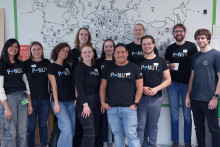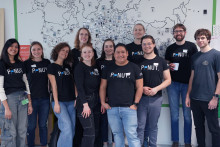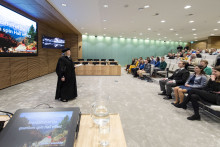Here are the key ingredients that I believe were omitted in the previous text; the current (and active) efforts of supervisors, fellow PhDs, the staff, and the internationalization team at UT. The piece merely quotes P-NUT’s 20-person-study which was meant to (preliminary) quantify inclusion feelings amongst the UT’s PhD community. Twenty people, out of the 650+ PhD candidates that are currently at the UT. I was surprised and confused when I read this, so I asked my fellow PhDs (50+); Did anybody know about this survey? Did anybody have access to it? The answer: no. Is it justified to come up with such shocking and provocative conclusions as the ones presented in the previous piece when the survey samples merely 3% of the PhD community? Furthermore, inclusion should also count postdoctoral researchers. If postdocs are to be included, the survey sampled even less than this 3% of the relevant population. Also, the piece does not mention that isolated students are likely to respond more strongly to these surveys. Especially, because it took place during the ongoing pandemic which implies that, sadly, most UT employees are unable to go to campus and meet their fellows. I hardly feel one can come up—or present—conclusive answers regarding inclusion when the current nation-wide advice is to maintain social distancing and work from home.
I also found astonishing the quoted statements from the former president of P-NUT (Roberto Cruz Martinez), where he claims this: ‘The lack of systematic introduction of new PhDs is something we already knew of… There are no university-wide guidelines for this and PhDs can face lack of information. For example, we are working on a PhD manual, a document that could be shared with every new PhD to help them get started here’.
Now, let us dissect these statements; (1) New employees of the UT can, since a very long time, sign-up for an introductory meeting including a campus tour (online during Covid). These introductory meetings are carried out monthly by the internationalization team at the UT. (2) There are University-wide guidelines. In fact, there are at least two booklets and they are provided to the newcomers by email (and sometimes even hard copies). One is specifically aimed at international students (also PhDs), and the other one goes more in-depth into administrative issues (for those who are interested in reading it). The guides cover the most important information you would need when starting at a new place; a map of both the city and the campus, local cycling rules, differences in culture and education, events on campus, cultural and sports associations, how to deal with health insurance and health issues, how to register/de-register at the municipality, and there is a specific part of it for PhDs! (pages 96-100 of the 101-page document), including opportunities for after obtaining the doctoral degree. (3) The lack of information is the only statement that I partially agree with. If the former president of P-NUT does not know about the international handbook written by the University, the monthly introductory meetings and all the other inclusion efforts of the UT: then yes, there is a failure in the system which needs to be addressed. However, most of the information I mention in this document was passed onto me when I became a PhD at UT in 2018 and I know for a fact that the guides are updated and uploaded to the UT’s website yearly.
The UT and its internationalization team do massive work on making the transition for internationals as smooth as possible, starting with visa & municipality procedures. In my case, the UT has always been helpful and has always made me feel supported and included within the system. I deeply appreciate the huge efforts the UT community puts in to include us, internationals. I appreciate the free Dutch classes that I got to take, I appreciate the Female Faculty Network’s events which I regularly attend, I appreciate the cultural courses that I have attended, the free sports lessons (online now), the monthly chair-massage that the University offers, the multiple cultural and sports associations, the confidential advisors that are there to talk to you if you are in a difficult situation, the leadership, communication, career orientation and interview skills classes, the new diversity and inclusion officer, the health & lifestyle check, access to a dietician, the help provided while opening my first Dutch bank account, while registering to the municipality, the help I get from LISA when I run into computer problems, the coffee & chocolate milk from all UT machines, and also the discounts on ice-skating and cinemas.
I am thankful for all the support staff who seamlessly changes to English when I approach them with questions, and I am thankful for the ones who patiently switch to Dutch when I ask them so I can practice with them. I can say from experience that this is by no means the case in Colombia, Italy, or Germany (all places where I have lived and worked in the past). I am thankful that almost all the UT emails and websites are in English so I do not have to spend time trying to figure out what or how I should proceed with bureaucracy and other administrative tasks. I am extremely thankful for the ‘small’ details; like having the UT letters bathed in the rainbow flag for international coming out day, the brownies, the cookie dough, the Christmas presents, the face mask, the Easter chocolates and the flower seeds that the UT has very kindly sent to my home during the pandemic.
Thank you, UT, for working on inclusion; I feel I am part of the UT system and I am sure that with the new Include-U initiative I will feel even more welcomed here. I am sorry to see that some UT members do not feel included enough and while I do acknowledge that access to all these initiatives is not necessarily inclusion, I do believe it is a significant part. Hopefully, the PhDs who have had a different experience as compared to mine can reach out to some of these initiatives (including Include-U). I am sure their feedback and enthusiasm in constructing a more inclusive UT will help us all feel more at home.








